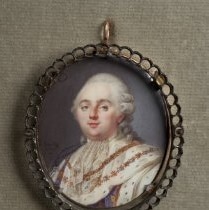- Trial Court Law Libraries

Article 6 (1780)
No man, nor corporation, or association of men, have any other title to obtain advantages, or particular and exclusive privileges, distinct from those of the community, than what arises from the consideration of services rendered to the public; and this title being in nature neither hereditary, nor transmissible to children, or descendants, or relations by blood, the idea of a man born a magistrate, lawgiver, or judge, is absurd and unnatural.
Precedents, Following Law, and Quotations
Section 4, Virginia Declaration of Rights, Adopted unanimously June 12, 1776, Virginia Convention of Delegates, drafted by Mr. George Mason:
“That no man, or set of men, are entitled to exclusive or separate emoluments or privileges from the community, but in consideration of public services; which, not being descendible, neither ought the offices of magistrate, legislator, or judge be hereditary.”
Emoluments Clause, Article 6, Section 1, Articles of Confederation (ratified by the 13 original states in 1781, superseded by the U.S. Constitution in 1788):
“No State, without the consent of the United States, in Congress assembled, shall send any embassy to, or receive any embassy from, or enter into any conference, agreement, alliance, or treaty, with any king, prince or State; nor shall any person holding any office of profit or trust under the United States, or any of them, accept of any present, emolument, office, or title of any kind whatever, from any king, prince, or foreign State; nor shall the United States, in Congress assembled, or any of them, grant any title of nobility.”
Letter from Benjamin Franklin’s grandson to Thomas Jefferson, (1790):
“The Present to my Grandfather was supposed to be worth fifteen hundred Louis d’ors, and consisted in a large Miniature of the King, set with four hundred and eight Diamonds, of a beautiful Water, forming a Wreath round the Picture and a Crown on the Top. This is the form of the Presents usually given to Ambassadors and Ministers Plenipotentiary, tho’ of more or less value.”
“Emoluments Clause,” also known as the “Title of Nobility Clause”, Article I, Section 9, Clause 8, U.S. Constitution (1789):
“No title of nobility shall be granted by the United States: and no person holding any office of profit or trust under them, shall, without the consent of the Congress, accept of any present, emolument, office, or title, of any kind whatever, from any king, prince, or foreign state.”
Image: Gift from Louis XVI to Benjamin Franklin (1784) now owned by The American Philosophical Society, perceived to have violated the Emoluments Clause in the Articles of Confederation

